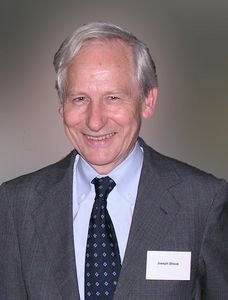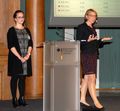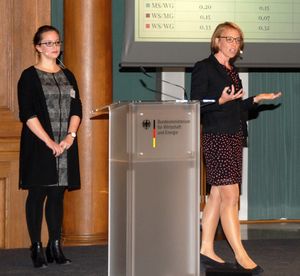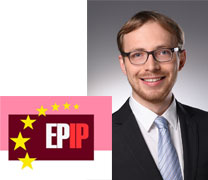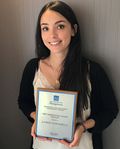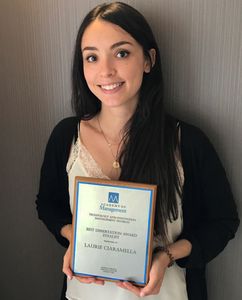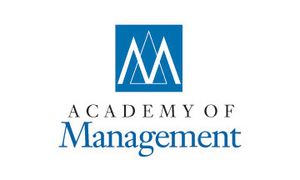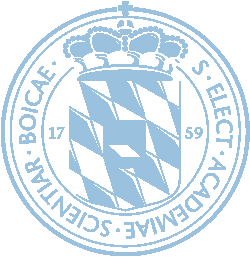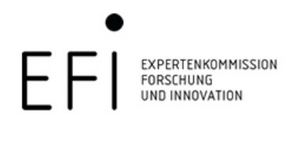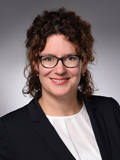On December 14 Prof. Dr. Dr. h.c. mult. Joseph Straus will celebrate his 80th birthday. He has for decades been one of the world's leading and most respected research personalities in intellectual property law with a clear focus on patent law.
After completing his law studies at the University of Ljubljana in 1962, Joseph Straus moved to Munich. As the first doctoral candidate of Friedrich-Karl Beier, he obtained his doctorate in 1968 at the University of Munich with a dissertation on competition law in Yugoslavia. In 1977, Joseph Straus took over the Yugoslavia Department at the Max Planck Institute for Foreign and International Patent, Copyright and Competition Law under its director Friedrich-Karl Beier. After his habilitation at the University of Ljubljana in 1986, Joseph Straus was appointed titular professor there in the field of intellectual property law. At the beginning of the 1990s, Joseph Joseph Straus also taught at the Law Faculty of the University of Munich, where, to this day, as an honorary professor, he continues to supervise a large number of doctoral students.
Joseph Straus earned his worldwide reputation as a legal scholar first and foremost through his intensive research on forward-looking topics, primarily in patent law, at the Max Planck Institute. In 2001 he was appointed Director of the Institute - where he joined the sitting Director Gerhard Schricker.
In managing the newly established Max Planck Institute for Intellectual Property, Competition and Tax Law in 2003 and 2004, he was not only responsible for repositioning the Institute to meet new challenges. He also took on the demanding responsibility of establishing the Munich Intellectual Property Law Center (MIPLC), with its internationally leading Master's Degree program in intellectual property law. In close cooperation with the University of Augsburg, the Technical University of Munich and the George Washington University in Washington, D.C., Joseph Straus led the MIPLC until his official retirement from the Institute in 2008. The success of this one-year degree course in its first 15 years, and the program's enormous international appeal, are due not only to a worldwide network of over 300 alumni but also in large part to the enthusiasm and strategic skills of its founder, Joseph Straus.
Retiring to a contemplative, private life is not in the nature of Joseph Straus. He continues to publish widely and is still a highly requested speaker at conferences all over the world. Among his many foreign research and teaching positions, consultancies in international organizations and activities in scientific organizations and societies, those deserving particular mention include his visiting professorships at Cornell Law School (1989 to 1998), the University of Toronto (2005), George Washington University in Washington, D.C. (2001 to present) and Tsinghua University in Shanghai (2015 to 2017) and his appointment to a research professorship (2011 to 2016) at the University of South Africa (UNISA).
Joseph Straus is a corresponding member of the Slovenian Academy of Sciences and Arts (since 1995) and a member of the Academia Europea (since 2001). In addition, Joseph Straus was co-editor of GRUR Int. and President of the International Association for the Advancement of Teaching and Research in Intellectual Property (ATRIP) (1993 to 1995), longtime Vice President and member of the GRUR Executive Committee, and finally chair of the AIPPI Program Committee and chair of the Human Genome Organization (HUGO). His scientific advice has been requested by the OECD, WIPO, UNCTAD, the European Patent Office, the German Ministry of Justice and the Legal Service of the German Bundestag, as well as by the European Commission as a member of the Expert Group on Biotechnological Inventions.
The award of the Science Prize of the Stifterverband der Deutschen Wissenschaft in the year 2000 stands out among his scientific honors. He was awarded an honorary doctorate by both the University of Ljubljana (2001) and the University of Kragujevac (2003). He was also honored by the University of Xiamen, Huangzhong University for Science and Technology (HUST) in Wuhan, and Tongji University in Shanghai as Honorary Professor. Joseph Straus is a bearer of the Grand Cross of Merit of the Federal Republic of Germany (2005) and of the Slovenian Order of Merit (2010).
The Institute honoured its former director with a special event in the patent law lecture series followed by a reception on December 18. The evening’s speakers were close and long-term companions of the honoree. Prof. Dr. Rudolf Kraßer, Dr. Rainer Moufang, Prof. Dr. Bojan Pretnar and Wolrad Prinz zu Waldeck und Pyrmont spoke on particularly important topics of intellectual property law that are still a part of Joseph Straus’ research work today.
Updated 12/19/2018


